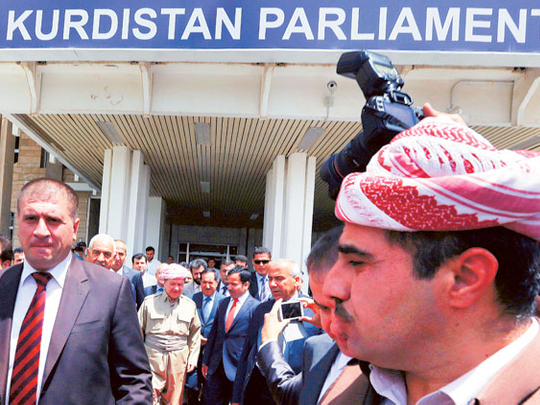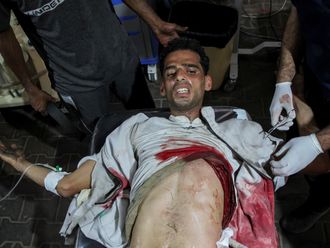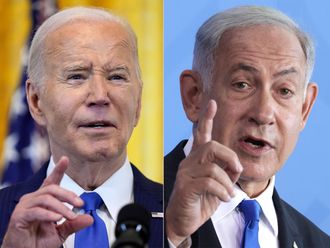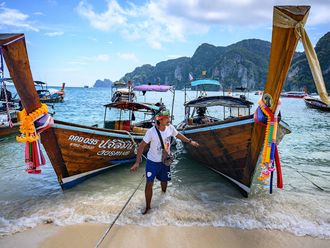
Dubai: If Iraqi Kurdistan President Massoud Barzani’s push for independence, his intent made clear in a recent announcement, is successful and Iraq is dismembered, analysts believe this will change the political, geographical and historical maps of not only Iraq but the whole region.
It would also plant landmines in the wider region and threaten the stability of neighbouring countries where Kurdish communities live. However, Iraqi Kurdish officials said their plan is meant to effect only Iraq and not its borders.
“If it happens, it will be probably the biggest development in the post Second World War era in the Middle East,” said Turkish political scientist and columnist Gokhan Bacik.
“On one hand, it is a partition of a big Arab state, and it will have a serious impact on any kind of political understanding in the whole region. On the other hand, it is the rise of [Iraq] Kurdistan,” added Bacik in an interview with Gulf News from Ankara.
“The rise of a Kurdish state in Iraq will affect the neighbouring countries with Kurdish communities,” said Dia Rashwan, head of the Cairo-based Al Ahram Strategic Studies Centre.
Kurds in other countries will also call for independence once their comrades in Iraq have achieved it and this will destabilise the whole region, he said. But Vahal Abdul Rahman, from Barzani’s office said, “right now it is not feasible to look at greater Kurdistan. Right now, we are looking at Iraqi Kurdistan.”
In Iraq, the Kurds came closer to achieving their goal in 1991, when the United States imposed a no-fly zone over their territories in the northern part of Iraq to protect them from attacks by the forces of the late Iraqi president Saddam Hussain.
Later, they got their autonomy after the toppling of Saddam’s regime in 2003. Today, they have their own parliament and foreign minister.
Last week, Barzani told the BBC that plans are underway to hold a referendum on Kurdistan’s future within months, adding “Independence is a natural right of the people of Kurdistan.”
Barzani’s announcement came as tensions have been ratcheted up between Kurdistan’s regional leaders and the central government in Baghdad over several issues, including the next prime minister and oil exports. Baghdad said oil is being exported without their consent, but the Kurds say they are entitled to market the resources from their own region. The tensions also coincided with escalating tension between Iraqi troops and militants from the Islamic State of Iraq and the Levant (Isil).
The positions of the Iraqi government in Baghdad have pushed the Kurds to seek independence, “despite the fact that this is a legal right for the Kurds and the people of Iraq Kurdistan” said Abdul Rahman.
Asked about the international community’s recognition of the possible independence, Abdul Rahman said only the people of Kurdistan have the right to determine their future.
So far, only Israel has announced its support of an independent Iraq Kurdistan.
“Whoever encourages the independence is actually placing landmines in the whole Middle East,” Rashwan said.
If established, “Kurdistan will be another non-Arab state in the bigger region (after Turkey, Israel and Iran). Since [the] mid-forties, it is Israel’s strategy to recognise any non-Arab state in the region,” Bacik added.
Commenting on the countries that will recognise the new entity, once announced, the Turkish political scientist said it is “difficult” to talk about it now. However, he continued that the idea of an independent Kurdistan traces back to the First World War, so there is “already a matured idea” among western countries.
But it is still unclear how the three powers — US, China and Russia — will react.
“My understanding is on the short term the US will not recognise it,” but won’t do anything to prevent it. “[The] Kurdistan we are talking about is an American product, the safe-heaven and the no-fly zone. It is an American product to a large extent.”
The US said it is against the fragmentation of Iraq.
Some analysts say if an independent state was established in Iraq Kurdistan, “it will be a turning point in the history of the region and scholars will try to rewrite [the] history of the region: before Iraq’s fragmentation, after Iraq’s fragmentation.”











